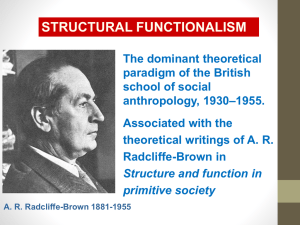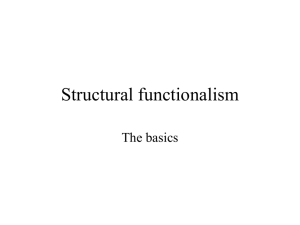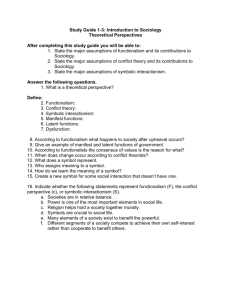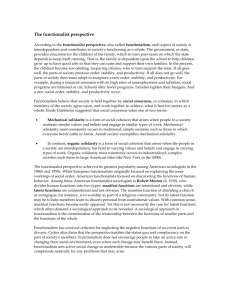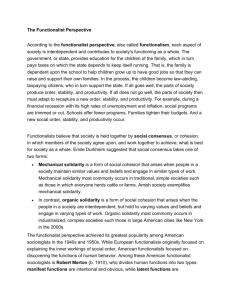Functionalism Intro
advertisement
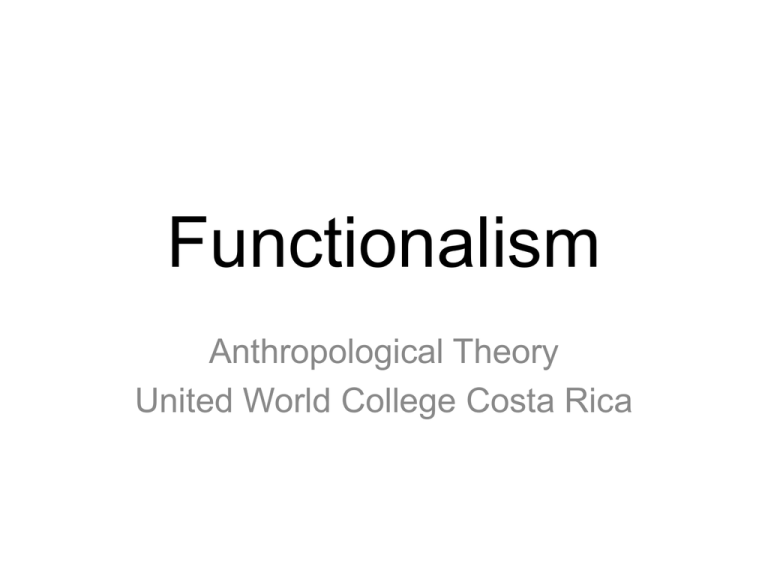
Functionalism Anthropological Theory United World College Costa Rica Basic assumptions of Functionalism • Functionalists seek to describe the different parts of a society and their relationship through the organic analogy. • The organic analogy compared the different parts of a society to the organs of a living organism. • Functionalist analyses examine the social significance of phenomena, that is, the function they serve a particular society in maintaining the whole Two versions of Functionalism • Emerged in early 20th century in Britain • Big names were Bronislaw Malinowski and A.R Radcliffe-Brown • Bio-cultural Functionalism (Malinowski) and Structural Functionalism (Radcliffe-Brown) Bio-cultural functionalism • Individuals have physiological needs (reproduction, food, shelter) and that social institutions exist to meet these needs. • Also culturally derived needs and four basic "instrumental needs" (economics, social control, education, and political organization), that require institutional devices. • Each institution has personnel, a charter, a set of norms or rules, activities, material apparatus (technology), and a function. • Malinowski argued that uniform psychological responses are correlates of physiological needs. • ‘Satisfaction of these needs transformed the cultural instrumental activity into an acquired drive through psychological reinforcement’ (Goldschmidt 1996:510) Structural Functionalism • Focused on social structure rather than biological needs. • Society is a system of relationships maintaining itself through cybernetic feedback, while institutions are orderly sets of relationships whose function is to maintain the society as a system. • Radcliffe-Brown, inspired by Augustus Comte, stated that the social constituted a separate "level" of reality distinct from those of biological forms and inorganic matter. • Radcliffe-Brown argued that explanations of social phenomena had to be constructed within the social level. Thus, individuals were replaceable, transient occupants of social roles. • Unlike Malinowski's emphasis on individuals, Radcliffe-Brown considered individuals irrelevant • Based on what you know so far, which functionalist perspective do you find most convincing? • Bio-cultural functionalism or structural functionalism?

